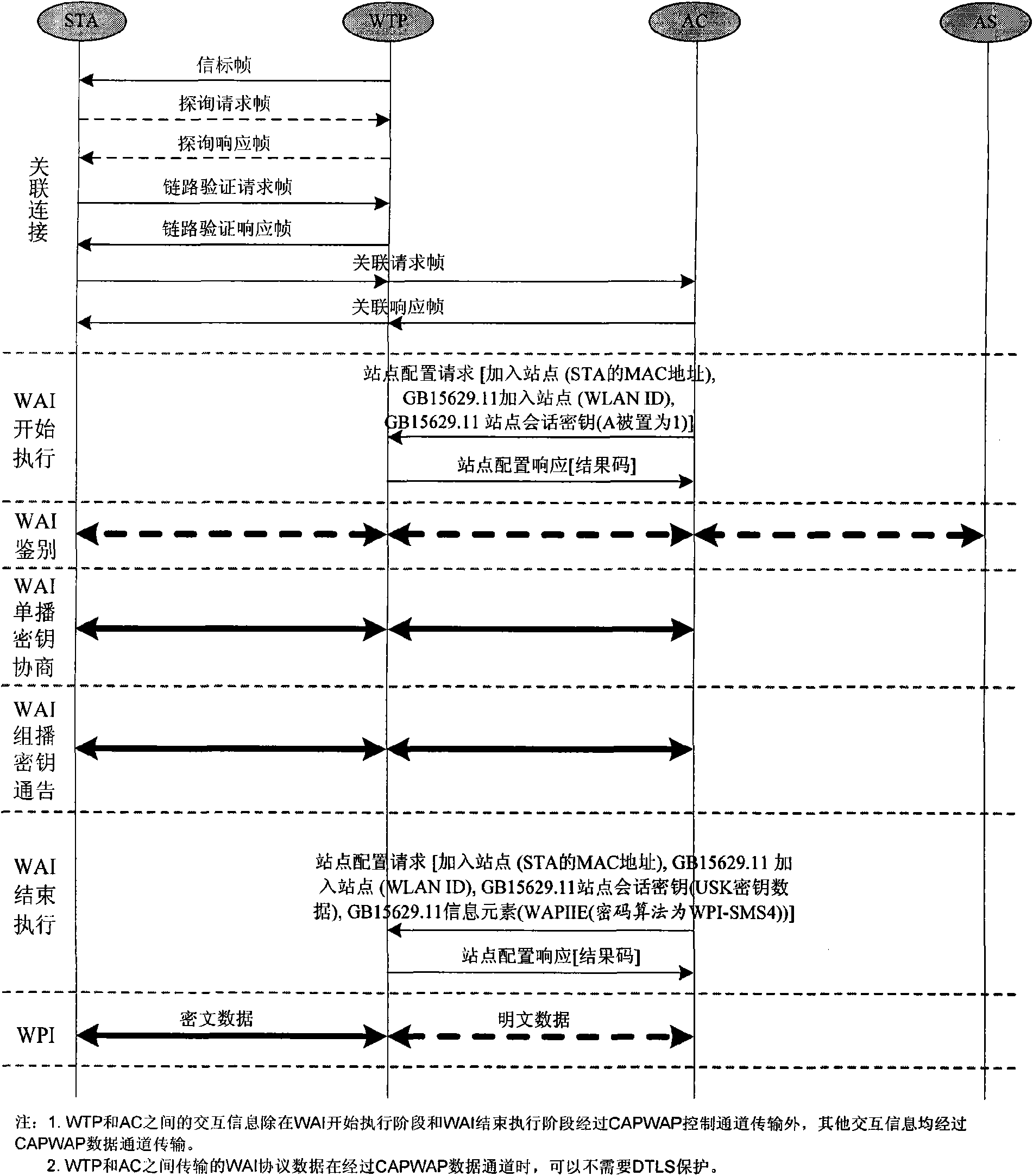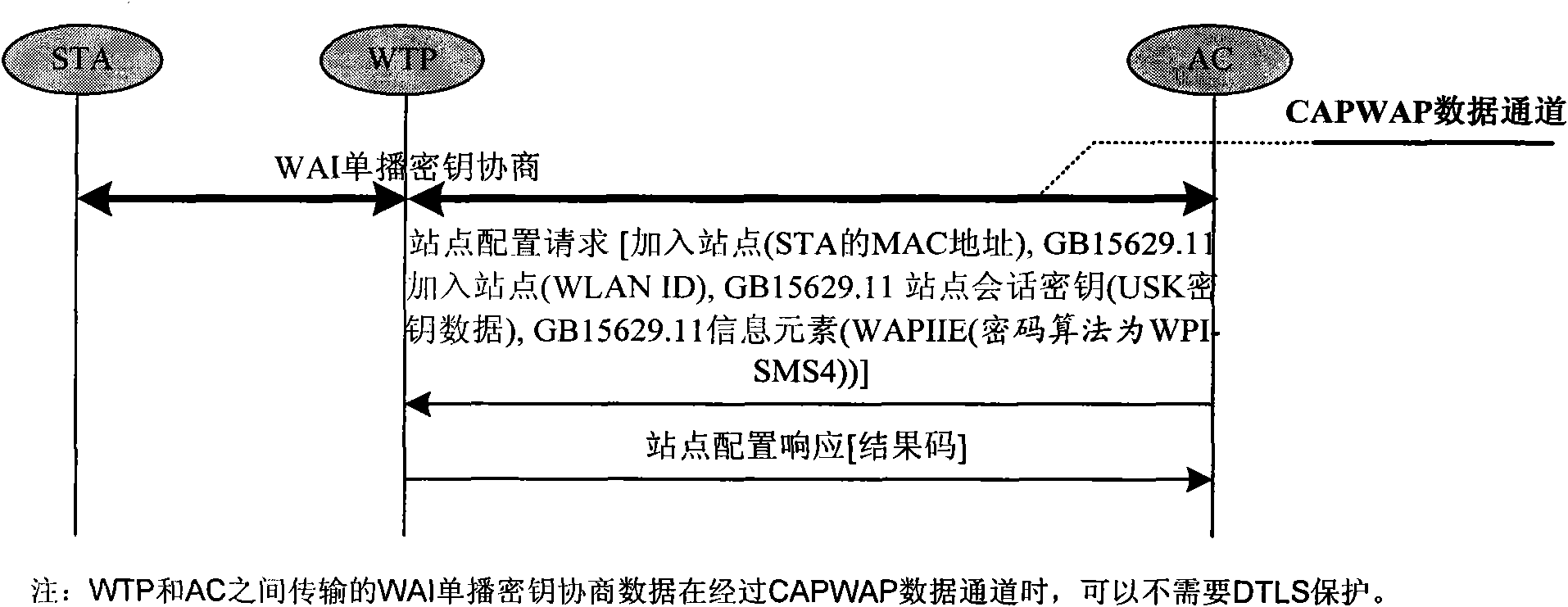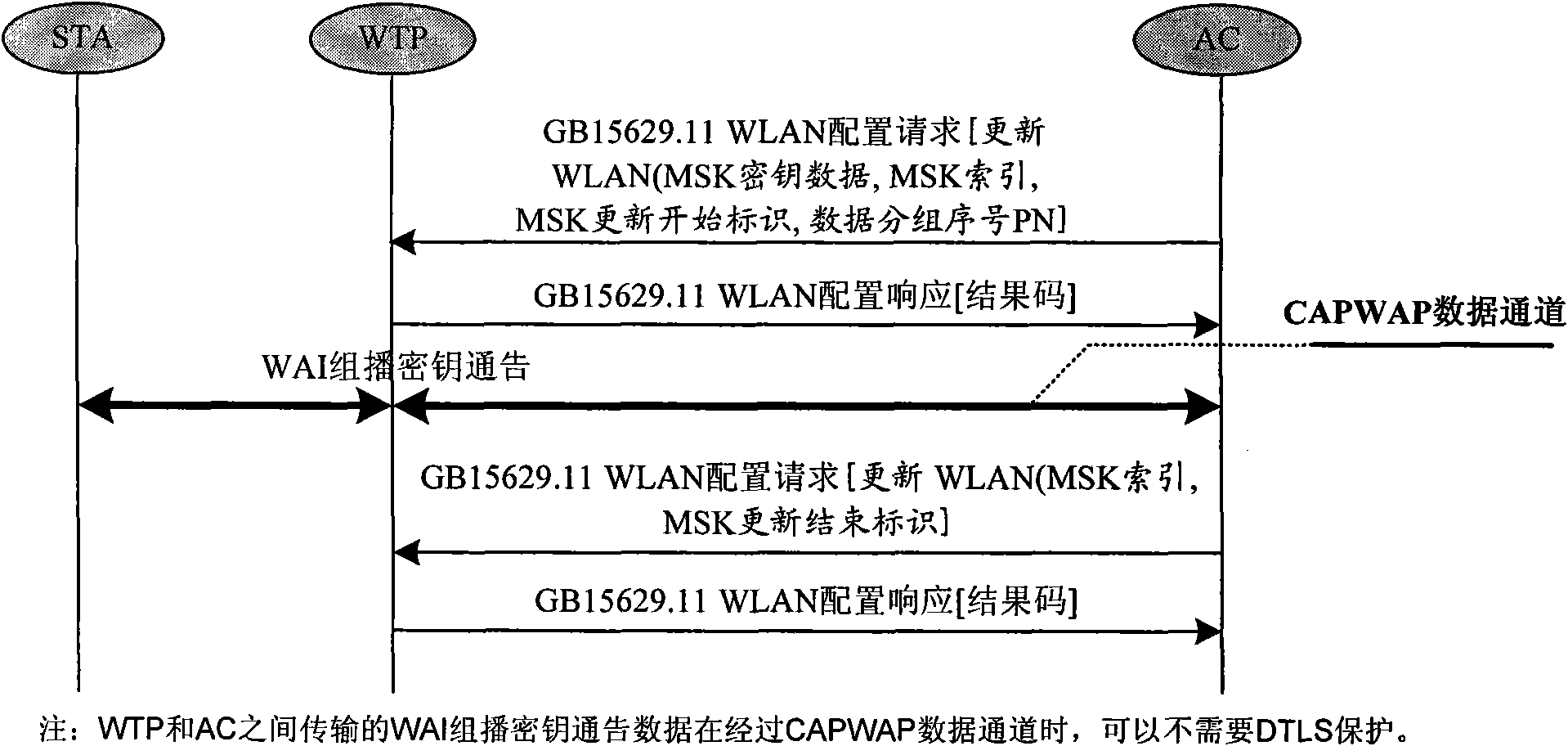Method for realizing convergence of WAPI and CAPWAP in local MAC mode
A mode and local technology, applied in the direction of security devices, electrical components, wireless network protocols, etc., can solve the problems of difficult, unrealizable, and inapplicable to large-scale network deployment requirements for secure access to the network
- Summary
- Abstract
- Description
- Claims
- Application Information
AI Technical Summary
Problems solved by technology
Method used
Image
Examples
Embodiment Construction
[0052] see figure 1 , according to a preferred embodiment of the present invention, its specific method is as follows:
[0053] 1) Build a local MAC mode: separate the MAC function and WAPI function of AP to WTP and AC;
[0054] 2) In the local MAC mode, realize the local MAC mode that binds the CAPWAP specification to WAPI;
[0055] 2.1) The association connection process between STA, WTP and AC;
[0056] 2.1.1) The STA passively listens to the WTP beacon frame to obtain WTP-related parameters, including WAPI information elements (WTP-supported WAI authentication and key management suites, cipher suites, etc.); or the STA actively sends an inquiry request frame to the WTP, After the WTP receives the inquiry request frame from the STA, it sends an inquiry response frame to the STA, and the STA receives the inquiry response frame from the WTP to obtain the relevant parameters of the WTP, including WAPI information elements (WTP-supported WAI authentication and key management ...
PUM
 Login to View More
Login to View More Abstract
Description
Claims
Application Information
 Login to View More
Login to View More - R&D
- Intellectual Property
- Life Sciences
- Materials
- Tech Scout
- Unparalleled Data Quality
- Higher Quality Content
- 60% Fewer Hallucinations
Browse by: Latest US Patents, China's latest patents, Technical Efficacy Thesaurus, Application Domain, Technology Topic, Popular Technical Reports.
© 2025 PatSnap. All rights reserved.Legal|Privacy policy|Modern Slavery Act Transparency Statement|Sitemap|About US| Contact US: help@patsnap.com



